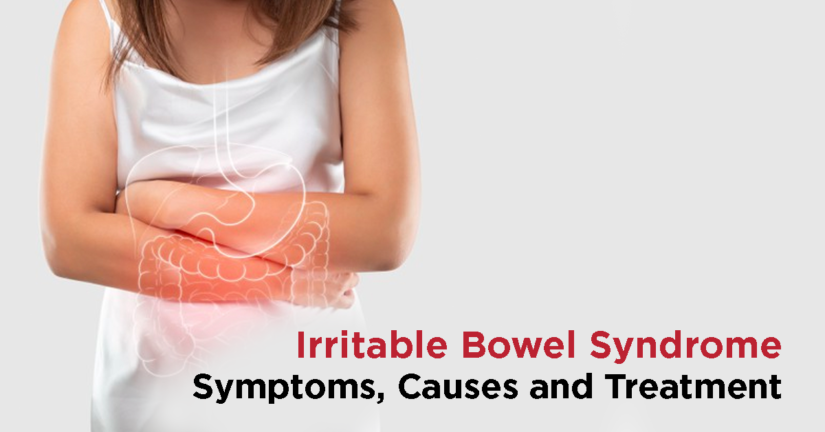In an era of rising health consciousness, where individuals are increasingly aware of the importance of holistic well-being, conditions like Irritable Bowel Syndrome (IBS) often come under the spotlight. This multifaceted disorder affects millions globally, presenting a myriad of challenges to those afflicted. Understanding IBS entails delving into its intricate web of causes, symptoms, and treatment modalities, including the promising avenue of Panchakarma therapy.
The Enigma of Irritable Bowel Syndrome
IBS is a gastrointestinal disorder characterized by a cluster of symptoms, including abdominal pain, bloating, diarrhea, and constipation, often fluctuating in severity and frequency. While the exact etiology remains elusive, several factors are implicated in its development, ranging from abnormal gut motility and visceral hypersensitivity to dietary triggers and psychosocial stressors.
Deciphering the Symptoms
The symptoms of IBS can vary widely among individuals, making diagnosis a challenging endeavor. Common manifestations include:
- Abdominal Discomfort: Persistent or recurrent abdominal pain or cramping is a hallmark symptom of IBS.
- Altered Bowel Habits: IBS can manifest as diarrhea, constipation, or a combination of both, with bowel movements often accompanied by urgency or a feeling of incomplete evacuation.
- Bloating and Gas: Excessive gas accumulation and bloating are frequent complaints among IBS patients, contributing to discomfort and distress.
- Psychological Distress: Anxiety, depression, and heightened stress levels are commonly reported by individuals with IBS, further exacerbating their symptoms.
Exploring Treatment Options
Managing IBS entails a multidimensional approach aimed at alleviating symptoms, improving quality of life, and addressing underlying contributory factors. Treatment strategies may include:
- Dietary Modifications: Identifying and avoiding trigger foods such as certain carbohydrates (FODMAPs), caffeine, alcohol, and fatty foods can help mitigate symptoms.
- Lifestyle Changes: Stress management techniques, regular exercise, and adequate sleep are integral components of IBS management, promoting overall well-being and symptom control.
- Medications: Depending on symptomatology, medications such as antispasmodics, laxatives, and antidepressants may be prescribed to alleviate specific symptoms and improve bowel function.
- Psychological Therapies: Cognitive-behavioral therapy (CBT), hypnotherapy, and mindfulness-based interventions have shown efficacy in reducing symptom severity and enhancing coping mechanisms.
- Complementary and Alternative Therapies: Acupuncture, herbal remedies, and probiotics are among the complementary approaches explored in the management of IBS, although evidence supporting their efficacy remains variable.
Panchakarma: A Holistic Approach to Healing
In recent years, Panchakarma therapy has garnered attention as a potential adjunctive treatment for IBS, offering a holistic approach to gastrointestinal health. Rooted in Ayurveda, Panchakarma encompasses a series of detoxification and rejuvenation procedures aimed at restoring balance and harmony within the body.
Understanding Panchakarma
Panchakarma derives its name from the Sanskrit words ‘Pancha,’ meaning five, and ‘Karma,’ meaning actions or procedures. It encompasses a comprehensive detoxification protocol consisting of five primary therapeutic modalities:
- Vamana (Emesis): Therapeutic vomiting induced through the administration of emetic substances, aimed at expelling toxins accumulated in the upper respiratory tract and gastrointestinal system.
- Virechana (Purgation): Controlled purgation facilitated by herbal laxatives to eliminate metabolic waste and toxins accumulated in the liver, gallbladder, and intestines.
- Basti (Enema): Rectal administration of medicated oils or decoctions to cleanse and rejuvenate the colon, promoting optimal bowel function and alleviating digestive disturbances.
- Nasya (Nasal Administration): Nasal instillation of herbal oils or powders to purify the nasal passages, improve respiratory health, and enhance neurological function.
- Raktamokshana (Bloodletting): Blood purification therapy involving the removal of impurities from the bloodstream through techniques such as leech therapy or blood donation.
Panchakarma Treatment in Delhi: Nurturing Wellness Close to Home
For individuals seeking the benefits of Panchakarma treatment in the bustling metropolis of Delhi, a myriad of options await. Renowned Panchakarma centers dotted across the city offer tailored treatment regimens administered by skilled Ayurvedic practitioners, promising a rejuvenating experience grounded in ancient wisdom and modern convenience.
Conclusion: Embracing a Holistic Path to Wellness
In the realm of Irritable Bowel Syndrome, where conventional treatment approaches often fall short, the integration of complementary therapies like Panchakarma holds promise for those seeking relief from chronic gastrointestinal distress. By embracing a holistic approach to wellness, individuals can embark on a transformative journey toward optimal health, guided by the ancient wisdom of Ayurveda and the healing touch of Panchakarma therapy. As the pursuit of well-being continues to evolve, may each step forward bring us closer to a future where health knows no bounds.
